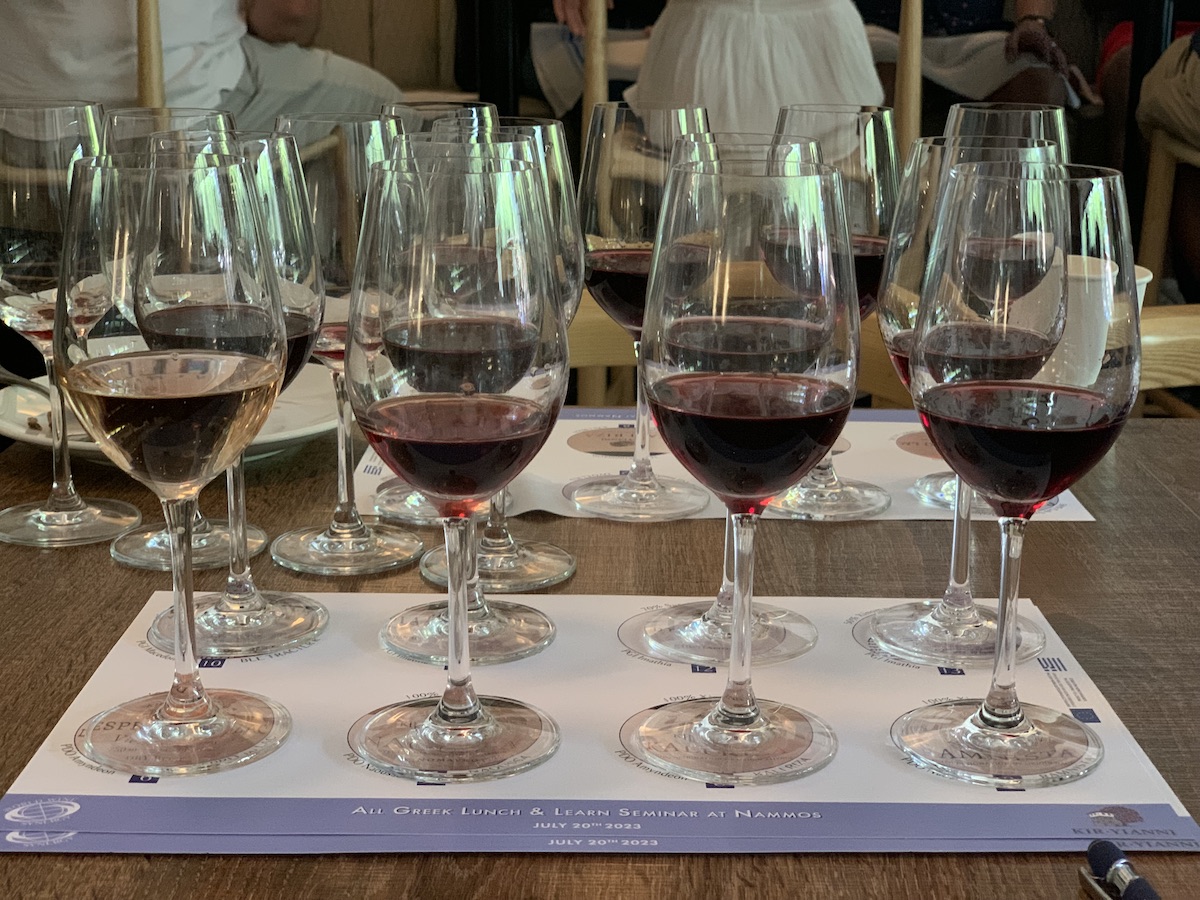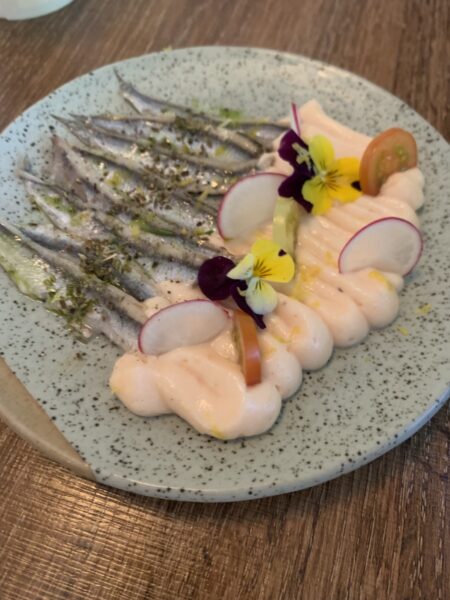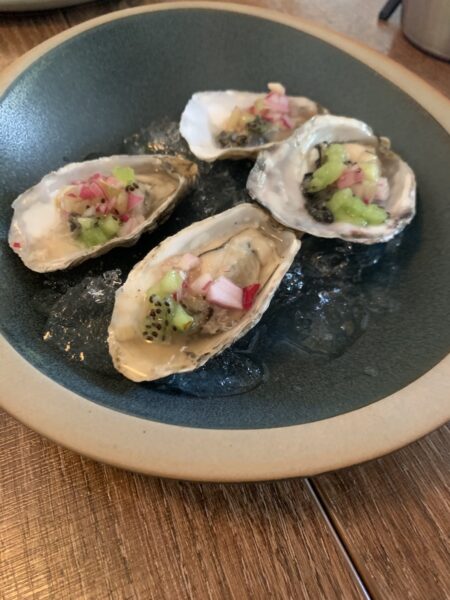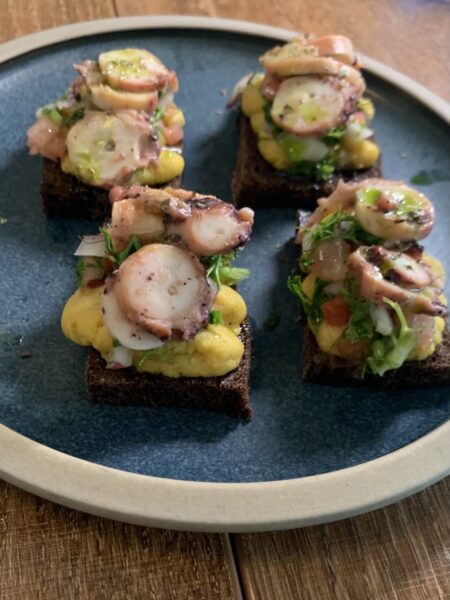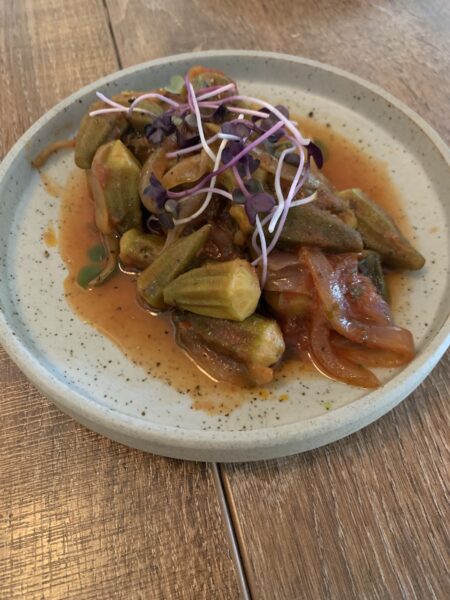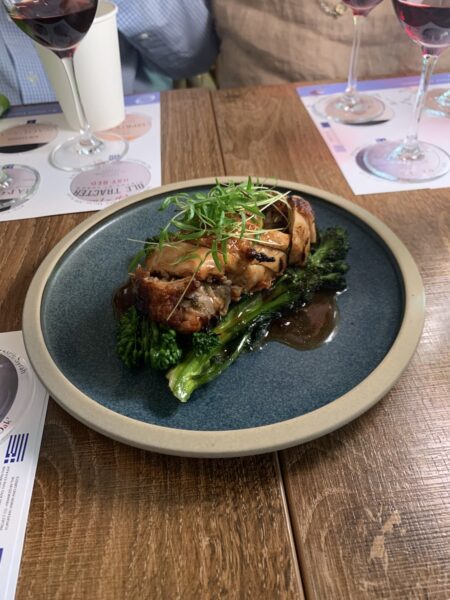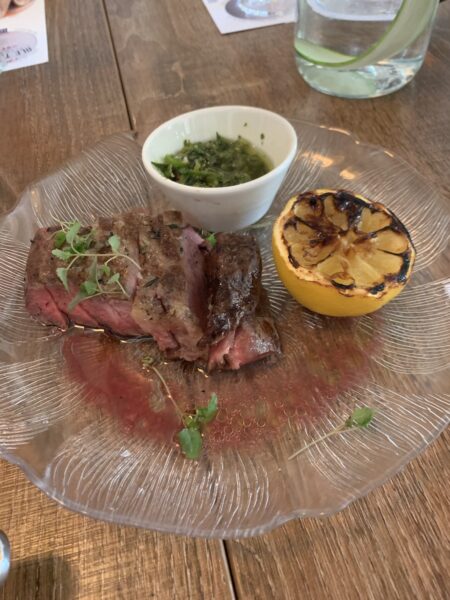World Wine Synergy recently hosted the All Greek Lunch & Learn at Nammos and as always it was above and beyond the expectations of everyone in attendance. This occasion was especially out of the ordinary as the many in the room had not been well acquainted with these unique wines from Greece.
Most likely we shouldn’t have been so surprised, the Greeks have been making wine for centuries, until now, so often, it just hasn’t been reaching our shores and stores. As we have come to expect from the dynamo that is Grace Li there are plans to change things when it comes to Greek wines from Kir Yianni.
We all enjoyed an incredible line-up of Greek wines from quality producer Kir Yianni, a premium winery based in Northwestern Greece, paired with traditional and authentic Greek cuisine from the skilled hands of Chef Petro Dimopoulous at Nammos Estiatorio.
This was no ordinary introduction but a curated tasting and culinary collaboration all tied together by the respected and knowledgeable Dr. John Volpe who guided us through 13 wines from Greece paired with authentic Greek dishes. Dr. John Volpe also delved into the history of the regions and terroirs where the wines came from. The event focused on grapes and wines where environment, soil, and climate are important determinants of the final product.
The menu:
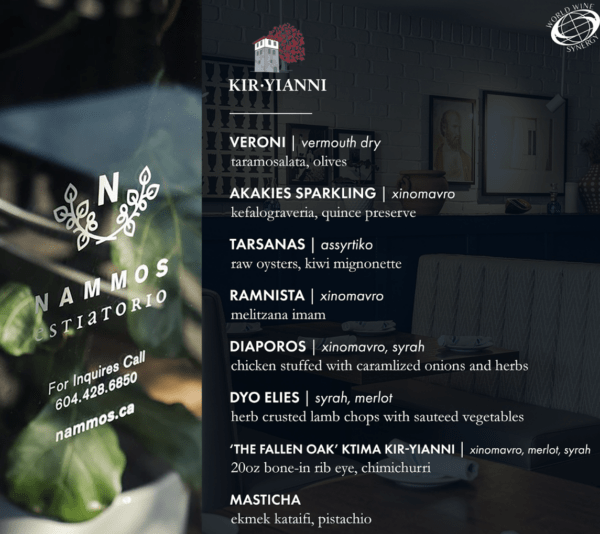
To start:
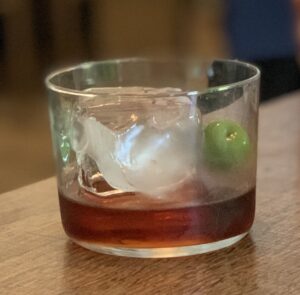
A sweet vermouth, smooth and fairly subtle but with lovely cooked ripe fruit aromas.
VERMOUTH VERONI ROSSO
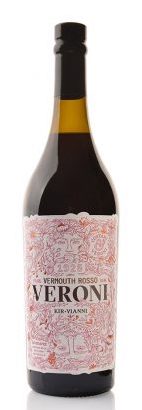
Origin: Wine from Naoussa and herbs from Mount Vermio Technical Analysis: Alcohol: 17%, Volatile Acidity: 0,37 g/L, Total Acidity: 3,9 g/L, Residual Sugar: 160 g/L, Active Acidity (pH): 3,88
CHARACTER
Veroni Rosso has soft caramel color. The aromatic character composed of red fruits like dried cherry, plum and orange peels is combined elaborately with hibiscus, rhubard, chamomile, black tea and sweet notes of vanilla and cinnamon. On the palate, Veroni Rosso has bitter characteristics from quinine and citrus which are accompanied pleasantly by the red dried fruits.
A sweet vermouth, smooth and fairly subtle but with lovely cooked ripe fruit aromas.
VERMOUTH VERONI DRY
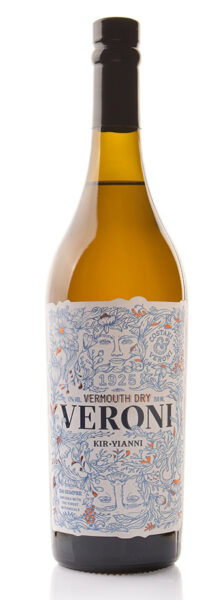
Origin: Wine from Naoussa and herbs from Mount Vermio Techinal Analysis: Alcohol: 17%, Volatile Acidity: 0,24 g/L, Total Acidity: 3,5 g/L, Residual Sugar: 45 g/L Active Acidity (pH): 3,58
STORY BEHIND THE LABEL
Veroni was a typical woman who lived in Naoussa during the Interwar period, and wife of Kostakis Nitsiotas, the beloved uncle of Yiannis Boutaris. She used to collect herbs from the slopes of Mount Vermio which was well known for its flora. She also liked vermouth, the iconic drink of 30’s. In order to please her, Kostakis, produced the Boutari Vermouth, enriching it with herbs collected by his wife. Today, three generations later and almost one hundred years after, Stellios Boutaris and Dimitris Melissanidis, revive that story through a new collabora tion and a new label, Vermouth Veroni.
CHARACTER
Veroni Dry has a medium lemon color. The nose shows complex aromatic character composed of herbs likefresh oregano, spearmint leaves, herb roots and chamomile. There are also secondary aromas of citrus, lemon beebrush, thymus and spearmint. On the palate, Vermouth has great balance between acidity and alcohol while the character lingers between herbals and bitter notes of quinine offering an elegant complexity and long after taste.
HERBAL DRYING AND EXTRACTION
Fresh oregano, Mint leaves, Mountain tea, Marjoram, Mint, Chamomile, Thyme, Elderberry , Gentian (wild pepper), Verbena, Absinthe Herbal ingredients are harvested from sustainable crops of endemic plants of Mount Vermio, in order to ensure the excellent quality of raw material and protect the indigenous flora. Applying environmentally friendly methods, herbs are collected, washed with cool water so to remove any unsavory elements and then dried with physical methods. When the herbs come to the desired degree of drying, they are divided into groups according to their characteristics and the extraction process begins. Hydro-alcoholic extract process takes place in 15οC-20οC for 45 days and then the botanical extract stays for 30 days so the aromatic compounds can be bind.
PRODUCTION OF VERMOUTH
For the production of Vermouth, the botanical extract is mixed with white wine from Xinomavro variety (blanc de noir) from Naoussa, oaked for 4 monthsin 5 year-old barrels of 225-ltand is then sweetened with crystal sugar. Then the final blend for Veroni Dry, is cooled and filtered and stays for 2 months in stainless steel tanks.
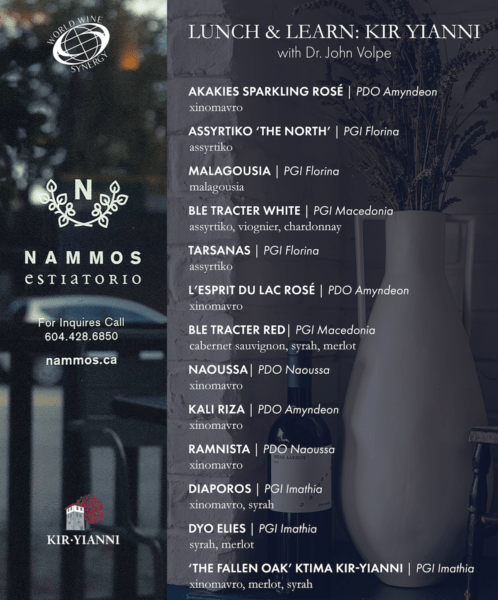
Exploring the diversity that Greek gastronomy has to offer from its wondrous land, sea, and soil.
AKAKIES SPARKLING
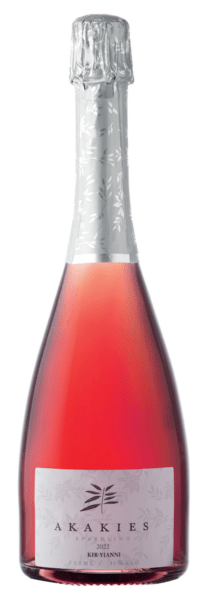
Variety: Xinomavro 100%
Vintage: 2022
Type: Sparkling rosé
Origin: Selected contracted vineyards of the area of Agios Panteleimon, in the PDO zone of Amyndeon, Northwestern Greece
Cellaring: Sur lie and batonnage for three months Aging Potential: 3-4 years
Analytic Characteristics:
The wine is VEGAN FRIENDLY
VINEYARD
The grapes are sourced from the viticultural zone of Agios Pantelei mon within the Amyndeon appellation in Florina, Northwestern Greece. The high altitude (700m) and the poor sandy soils of the area lead to the production of wines displaying finesse and a rare aromatic character. The four surrounding lakes that act as a buffer zone create perfect weather conditions for the cultivation of Xinomavro, more temperate than expected in this continental climate. The great diver sification of the vineyard blocks, leads to wide variations regarding the technological and phenolic ripeness of the grapes between the different vintages and requires a meticulous management of each vintage. Therefore, the grapes are classified at the moment of delivery at the winery by alcohol potential, acidity, phenols and bunch weight. This selection, which is carried out every year, allows choosing the proper wine making technique taking into account the quality and the different properties of the raw material.
VINIFICATION
The must is composed entirely of grapes carefully selected during the harvest on the basis of their content in sugars, phenols and acidity. After delivery at the winery, and before the press, the grapes are chilled at 11-14 °C. Three pressings take place under continuous and gradually increasing pressure. For the production of Akakies Sparkling we use the second pressing. After the must is settled and racked the first alcoholic fermentation takes place. The wine stays and is stirred on its lees for a few months and then is transferred to the closed tanks for the second fermentation, during which the bubbles are formed.
CHARACTER
A refreshing sparkling wine highlighting the varietal character of indigenous Xinomavro grape variety. An intense mousse and a bright cherry color, pronounced aromas of ripe strawberry and cherry and an elegant acidity adding freshness while pairing harmoniously with the discrete presence of sugars create a wine that is at the same time dynamic and balanced.
Light and delicate with pleasant fruity scents, a little red apple and rhubarb scents. A delightfully pinkish colour with a salmon hue.
Delicious, tastes of maple syrup yet fresh and fruity. Picking up raspberry but not initially any strawberry as expected. Traditionalmethod in stainless steel. Fresh and very pleasant wine, dry with a good level of acidity. This wine remained my favourite throughout the tasting.
ASSYRTIKO THE NORTH

Vintage: 2022
Origin: Selected blocks of the Amyndeon vineyards Variety: Assyrtiko 100%
Aging Potential: 3-4 years
The wine is VEGAN FRIENDLY
VINEYARD
The vineyard lies at an altitude of 700 meters within the viticultur al zone of Agios Panteleimon, in the Amyndeon Appellation in Northwestern Greece. The soil is sandy and poor, thus offering the possibility of producing wines of exquisite quality and rich aromas. The microclimate of the region is characterized by cold winters and warm summers, while the four neighboring lakes contribute to the existence of a mild continental climate. Assyr tiko is produced from young vines, 8-10 years old.
VINIFICATION
The grapes are cold soaked in order to maximize the extraction of aroma precursors into the must. Following racking, the must is inoculated with selected yeasts. After the end of the fermenta tion, the wine matures for a period of 4-5 months on fine lees, thus gaining more volume and complexity.
WINEMAKER NOTES
On the nose the wine displays aromas of white fruits and flowers. On the palate, the citrus acidity balances with the alcohol and the round mouthfeel and minerality of the wine, finishes with a linger ing aftertaste. An Assyrtiko wine with an intense character produced from young vines growing on the mountainous vineyards of Amyndeon. A wine ideal for food pairings: fish fillet roasted or poached, fried-cod, oven- roasted stuffed squid, pasta in sauce, white cheeses.
Delicious, light and refreshing. Subtley dry and flavourful. excellent acidity with aromas of fruit salad, citrus, mandarin and stone fruit. Low yield, low density, high quality, with a delicious hint of white pepper and minerality.
MALAGOUSIA

Variety: Malagousia 100%
Vintage: 2021
Origin: Vine blocks of Samaropetra hill in Florina
Cellaring: 8 months in stainless steel tanks with frequent batonnage Aging Potential: 3-4 years
STORY BEHIND THE LABEL
Malagousia, one of Greece’s most popular and trendy varieties, was first planted by Kir-Yianni on the Samaropetra hill in Florina in 2004. The area covers 0,8 ha with north-west exposure and the inclination is up to 15%.
The poor sandy-loam soils and the Guyot trellis system contribute to low vigour and low yield vines, free of diseases. The wine is of a highly aromatic intensity with crispy acidity, distinctive of its cold, mountainous origin2.560 bottles of this single vineyard wine were bottled for the 2021 vintage.
VINEYARD
Malagousia was first planted on Samaropetra hill in Florina in 2004. The area covers 0,8 ha with north-west exposure and the inclination is up to 15%. The poor sandy loam soil and the Guyot trellis system contribut to low vigour and low yield vines, free of diseases. The microclimate of the region is characterised by cold winters and warm summers, while the four neighbouring lakes contribute to the creation of a mild continental climate.
VINIFICATION
After a period of cold soak, which increases the extraction of more intense aromas from the skin of the grapes, the must is clarified through static debourbage, before it is inoculated with selected yeasts demonstrating the aromatic character of the grapes. Batonnage is applied in inox tanks for a period of 8 months, with the aim to add volume and complexity to the wine.
WINEMAKER NOTES
Malagousia Kir-Yianni, has pale lemon colour with green hues, exuding a sense of freshness. Refined muscat aromas characterized by jasmine, green apple and unripe nectarine. On the palate, the unique structure and body of the wine, balance well with the refreshing acidity. Lingering and peppery afterstate Malagousia pairs with fried appetizers, green salads of can be enjoyed as an aperitif.
With unusual but interesting scents, very floral. Continued with scents of sugar syrup and peaches.
Fruit pie on the palate follows the nose with an acidic hit that may have been the alcohol content. Mildly citus with almond notes.
BLE TRACTER WHITE

Harvest: 2022
Origin: Selected contracted vineyards of North Greece, region of Macedonia Varieties: Assyrtiko, Viognier, Chardonnay
Cellaring: 3-5 months in stainless steel tanks
Aging potential: 2-4 years
The wine is Vegan Certified
Vineyard
Next to Kir-Yianni’s vineyards are those of professional viticulturists with many of whom we have been collaborating with since the beginning of the Estate in 1997. This collaboration includes the scientific support by a team of agronomists throughout the year and finally the purchase of grapes. With this cooperation, we strengthen the local community and contribute to the preservation of the rich viticultural tradition in key viticultural zones of Central and Western Macedonia, such as Florina, Imathia, Pella and Goumenissa. In these areas, there are currently about 70,000 acres of vineyards and 14,000 vine growers.
Vinification
After a period of cold soak, which increases the extraction of more intense aromas from the skin of the grapes, the must is clarified through static debourbage, before it is inoculated with selected yeasts highlighting the aromatic character of the grapes. Batonnage is applied in inox tanks for a period of 3-5 months, with the aim to add complexity to the wine.
Winemaker Notes
Ble Tracter white is a charmingly aromatic wine with notes of citrus, white peach, apricot and pear. On the palate, the chalky minerality and the refreshing acidity balance well with the complex aromatic structure. Medium body and alcohol. An enchanting wine, which can be paired with fish and seafood, salads, grilled chicken, and also be served as a refreshing aperitif.
Slightly oaky with similarities to a Viognier or Chardonnay. Very light scents with high acidity. Paired very well with the octopus. A nice wine, I liked this one.
TARSANAS

Vintage: 2019
Origin: Samaropetra Vineyard, Amyndeon, Florina Variety: 100% Assyrtiko
Εstate Grown: 100% / Single Vineyard
Cellaring: Fermentation and maturation for 8 months in new French oak barrels
Aging Potential: 8-10 years
VINEYARD
The grapes are sourced from the viticultural zone of Agios Panteleimon within the Amyndeon appellation in Florina, Northwestern Greece. The high altitude of the vineyard (700m) and the poor sandy soils of the area lead to low vineyard yields (about 60 hl/ha) and slow ripening that results in a rare aromatic intensity especially for white grape varieties. Thanks to the four surrounding lakes that act as a buffer zone, the vines experience more temperate weather conditions than expected.
VINIFICATION
The grapes are picked at a high level of ripeness. Once at the winery, the fruit passes through a stage of pre- fermentation cold soak, a process that helps the extraction of more aromatic compounds from the skins and contributes to the creation of intensely wines. After settling, the must is inoculated with selected yeasts for the onset of fermentation, which is carried out in new 228-lt oak barrels. After the end of the fermentation, the wine remains in the barrels to mature for 8 months. The frequent batonnage is applied during the whole maturation period helps to shape the rich character of the final wine.
CHARACTER
The wine has intense yellow color while he nose is dominated by aromas of apple, pear and citrus fruits. On the palate, the cold climate adds structure, crispness, with a little touch of salt, while the refreshing acidity is supported by the soft aromas of the wood. Tarsanas can be paired with dishes of Mediterranean cuisine based on fish and seafood, green salads and Japanese cuisine.
I found this wine very oaky, almost toasty. Darker in colour, richer with ripe fruit. Super oaky with wild acidity, for me, somewhat unpleasant on the palate.
Interesting mix of flavours in the Okra dish and slightly bitter Brussel sprouts which effected the palate in not such a good way for me.
L’ ESPRIT DU LAC

Harvest: 2021
Origin: Old Vines about 60+ years old from Amyndeon, Florina
Variety: Xinomavro 100%
Cellaring: Sur Lie and Batonnage in stainless steel tank for 3-5 months
Ageing potential: 3-4 years
VINEYARD
The grapes are sourced from the viticultural zone of Agios Pantelei mon within the Amyndeon appellation in Florina, Northwestern Greece. The high altitude (700m) and the poor sandy soils of the area lead to the production of wines displaying finesse and a rare aromatic character. The four surrounding lakes that act as a buffer zone create perfect weather conditions for the cultivation of Xinomavro, more temperate than expected in this continental climate. The grapes come from 60-year- old vines, yielding no more than 6000 kg/ha. The selection of the vineyards was based on their soil, and the vines’ health and capacity to reach full maturity.
VINIFICATION
The must also comes from bleeding of the “Kali Riza” Xinomavro, which is more concentrated in phenolic ingredients. Selected yeast gives a blossom nose. The wine ages for 4 months with regular batonnage (1-2 times a week) in order for the creamier mouthfeel to balance the high acidity.
CHARACTER
L’Esprit du Lac or ‘’the spirit of the lake’’ is the new rose wine from Kir-Yianni Estate. It captures the dynamic spirit of Xinomavro into an elegant refreshing rose wine. Light body, fresh acidity with peach and strawberry aromas. Matches perfectly with Mediterranean cuisine.
Light delicate scents, pale in colour. Some nice strawberry notes. Also showing some delightful ripe notes and great acidity.Light, dry and refreshing.
BLE TRACTER RED

Varieties: Cabernet Sauvignon, Syrah, Merlot
Harvest: 2021
Origin: Selected contracted vineyards of Northern Greece, region of Macedonia
Cellaring: 8 months in steel tanks and a part of the blend in oak casks
Aging potential: 5-7 years
VINIFICATION
Following a careful hand harvest and overnight cooling to 4oC the grapes are sorted on a double conveyor belt before crush. After a five-day pre-fermentation cold soak at 10oC, the must undergoes a 15 day vinification in stainless steel tanks at controlled temperature ranges from 20-24oC. Then, batonnage is applied on the lees twice a day in order to increase the volume of the wine. A part of the blend matures in oak casks while the final blend undergoes malolactic fermentation. Before release, the wine stays in the bottle for 2 months.
WINEMAKER NOTES
Ble Tracter has a a rich, deep ruby colour with blue hues. The nose shows complex aromas of blackcurrant, plums, black pepper and vanilla. On the palete, it is dry, with balanced acidity and soft tannins, full body and intense aromas of black fruits, pungent and sweet spices and some herbal notes. A modern, fruity, very well balanced wine that accompanies meat dishes, pasta, mediterranean cuisine and is also enjoyable by itself.
Light scents and rather light in texture. A simple wine.
NAOUSSA
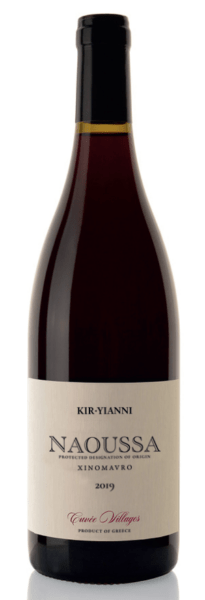
Variety: Xinomavro 100%
Vintage: 2019
Origin: Selected vineyard within the region of Naoussa Cellaring: 12 months mainly in French and American oak casks of 225lt and 500lt of 2nd and 3rd use plus further ageing in bottle for another 6 months
Aging Potential: 5-8 years
VINEYARD
The viticultural zone of Naoussa, lies on the foothills of mountain Vermio in Macedonia, covers an area of 500 ha at an altitude of 80- 350m. The climate is Mediterranean with continental influences with mild winters and relatively hot summers. The annual rainfall is up to 650 mm. For the label of Naoussa, Kir-Yianni, were selected young vines from the Estate and from the broader zone of the area which show great aromatic character and are planted at lower pH soils.
VINIFICATION
The grapes are handpicked and sorted on a conveyor belt before crush. After a six day pre fermentation cold soak at 8-10°C, the must undergoes a 12-15 day vinification at controlled temperatures. Fermentation temperature does not exceed 23°C. Roughly one third of the wine ferments in open top tanks with pigeage. The final blend is made five months after harvest and the last racking takes place about six months later. We use both French and American oak of 2nd and 3rd use and about 25% 500-lt casks.
CHARACTER
The wine is light ruby. It has intense aromatic profile, characterized by red fruits like cherry and strawberry. On the palate, Naoussa Kir-Yianni is ligh and fresh with soft tannins and medium body. It can be enjoyed pleasantly on its own or it can be paired with cheese, red sauces and cold cuts.
Available at Sutton Place Wine Merchant $28.99
Lovely ripe fruit with good minerality, a bit light in colour, lighter in body similar to a pinot. Quite tasty with nice acidity.
KALI RIZA

Variety: Xinomavro 100%
Vintage: 2019
Origin: Selected contracted vineyards of the area of Agios Panteleimon, in the PDO zone of Amyndeon, North-western Greece
Cellaring: The base wine stays on its lees and is frequently stirred for 12 months in 2 and 3-year- old French oak barrels. The wine ages for 12 more months in the bottle
Aging Potential: 8-10 years
VINEYARD
The grapes are sourced from the viticultural zone of Agios Panteleimon within the Amyndeon appellation in Florina, Northwestern Greece. The high altitude (700m) and the poor sandy soils of the area lead to the production of wines displaying finesse and a rare aromatic character. The four surrounding lakes that act as a buffer zone create perfect weather conditions for the cultivation of Xinomavro, more temperate than expected in this continental climate. The grapes come from 60-year-old vines, yielding no more than 6000 kg/ha. The selection of the vineyards was based on their soil, and the vines’ health and capacity to reach full maturity.
VINIFICATION
Kali Riza is produced from 100% Xinomavro grapes grown in the area of Amyndeon, in Northwestern Greece. The grapes are carefully selected on harvest depending on their age and content in sugars, phenols and acids. Upon delivery at the winery, they are chilled at a temperature of 8-10οC. After destemming, the grapes are crushed and left to cold soak for 6 days at 10οC, a process aiming at the extraction of more color and aromas. The alcoholic fermentation lasts 2 weeks and is followed by 1 week of post-fermentation maceration. After this period, the wine is transferred to the barrels, were it is left to mature for 12 months. During this time, the wine undergoes malolactic fermentation while it is gently stirred on its lees. Finally, the wine is bottled and left to mature for 1 additional year.
CHARACTER
Ruby with bronze hues, a color typical for the Xinomavro sourced from Amyndeon. Intense aromas of wild strawberry and cherry entwine with fine herbal hints, while on the palate the pronounced freshness balances with the ample body, offering a wine with great elegance. An ideal pair of meat cooked in red sauce, wild mushroom risotto, meat pies and grilled cheese it can be enjoyed now or after 10 years.
Kali Riza is available at BCLS $33.99
90 Points, International Wine & Spirits Competition: “Unctuously rich umami fragrance of truffle on the nose balanced by the sweetness of strawberries. Chased by a rich palate balanced with some stewed red fruits and smooth tannins.” (2022)
Rich, ripe fruit on the nose, Italian plums, leather with a slight amount of oak. Good acidity with medium to prominent tannins.
RAMNISTA

Variety: 100% Xinomavro
Vintage: 2018
Origin: Selected vineyard blocks within the private vineyards in Yianakohori
Cellaring: 16 months in 225lit for the 80% of the blend and 500lit for the 20%, both French and American oak casks are used, plus further ageing in bottle for another 12 months until its release Aging Potential: 10-15 years
VINEYARD
The Kir-Yianni vineyards have an overall southeast exposure at an altitude of 120-280 m. The estate is divided into a mosaic of 42 vineyard blocks of different mesoclimates with varying exposure, orientation, slope, soil type, rootstock, vine density and age, demanding tailor-made viticultural practices for each vineyard block. Rainfall is abundant during the winter months, but summers are so dry that regulated drip irrigation is applied to prevent water stress. Vine density ranges from 3,500 to 4,000 per hectare and the average crop yield is maintained below 2.5 kg per vine. For Ramnista we use grapes mostly from the vineyard blocks of lower pH and with lighter soil type in order to maximize the aromatic intensity and complexity.
VINIFICATION
The grapes are carefully handpicked and sorted on a conveyor belt before crush. The 2018 Ramnista was fermented for the first time in 5000-lt wooden vats (French oak) under total controlled tempera tures. In order to enhance the wine, the pigeage method is applied where the grape solids are pushed back into the wine for the proper extraction of color, flavor and tannins. The final blend is made five months after harvest and the last racking takes place about eight months later.
CHARACTER
An aromatic complex wine which combines powerfully fresh red fruits and notes of rose, make up the new vintage of 2018 Ramnista. On the palate, gentle tannins and round mouth feel, with distinctive sense of the oak barrel. The unexpected full body and robust acidity showcase a great wine with aging potential up to 15 years.
Scents of maple syrup, plum torte. The scents are very pleasant. Ripe fruit with aromas of stewed fruit and berry pie along with plums and blueberries.
Very ripe with good acidity and medium tannins. The wine paired very nicely with the lamb.
DIAPOROS

SINGLE VINEYARD XINOMAVRO 2018
VINIFICATION
After a seven-day pre-fermentation cold soak at 8-10°C, the must undergoes a 10-15 day fermentation at controlled temperatures in open tanks with automatic pigeage devices. Fermentation and post-fermentation temperatures lie between 23-26°C. This process aims at stabilizing the color of Xinomavro and at softening its tannins. All of the wine finishes off its malolactic fermentation in new French barrels, which offer micro-oxygenation conditions, while frequent batonnage is applied.
CHARACTER
Diaporos 2017 has deep red color with purple hues. The nose shows a complex aromatic character composed of successive layers of vanilla and chocolate notes from oak aging, and strawberry aromas typical of a young Xinomavro enhanced with floral hints, such as violet. The Syrah adds a spicy character while prolongs the aftertaste. The intense acidity adds zing to the rich, concentrated body, while the flavour intensity and the robust structure of the wine are a promise of a long aging potential.
Dusty with very ripe fruit scents, floral, cocoa, blackberries and leather.
DYO ELIES

Varieties: Syrah 70%, Merlot 30%
Origin: Selected blocks of the Naoussa vineyards at Kir-Yianni Estate
Cellaring: 14 months in 225 lt French and American oak casks- further ageing in bottle for another 8 months
Viticulture
The Kir-Yianni Estate vineyards in the PDO Naoussa zone are located at an altitude of 120-280m. On the Eastern foothills of Mt. Vermio. The appella- tion’s microclimate is marked by abundant precipitation during the winter and spring and moderate drought during summer. The site spans over rolling hills with medium to high slopes and panoramic exposure. Its soil type is a mixed limestone ranging from clay to loam and sandy loam. Due to this diversity and complexity of the site the vineyards are established in 42 separate blocks – each one with its own particular characteristics and viticul- tural practices. At the heart of the Estate two soil types and varieties meet: Syrah thrives on the low pH sandy loam of block #19 and Merlot on the loamy limestone of the block #32. These two blocks share moderate slopes facing southeast, while row orientation ranges from Northeast to East. A double vertical shoot positioning trellis and a generous vine spacing of 3500-4000 per hectare are in place for optimal vigor & canopy management. The resulting yield is 60 hectoliters per hectare.
Winemaking
The winemaking objective for Dyo Elies is to highlight the characteristics of each variety and then create a unique wine through their blending. Merlot offers the full body, Syrah adds the spice with a velvety aftertaste. Harvest dates are different for each variety starting from the end of August for Merlot, to the mid and end of September for Syrah. Grapes are hand-picked and manually selected on a sorting table prior to crush. For each variety, during the first week after crush, the must is cold soaked at 11-12οC in a reduc- tive environment. Temperatures gradually rise for the fermentation to take place at 29-30οC for Merlot, which also undergoes a post-fermentation maceration for a few days. In contrast, the temperature for Syrah is maintained at 22-24οC throughout the fermentation and as soon as it is over the malolactic fermentation is initiated in new oak. Following fermentation the wines are aged separately in French and American 225-lt casks. About 20% of the barrels in the cellar are renowned.
Winemaker’s Note
Deep ruby in color, on the nose the wine shows a pungent character composed of peppers, caramel and chocolate notes emerging over a background of ripe red fruits and smoke. The palate is full, showing volume, a rich structure and a lip smacking freshness that creates a lingering, spicy finish.
Very subtle but pleasant scents of black cherry, blackberry, and ripe fruits. Followed by an unpleasant acidity with medium tannins. It was recommended to cellar this one for 12 – 15 years before drinking.
THE FALLEN OAK

Variety: Xinomavro 50%, Merlot 30%, Syrah 20%
Vintage: 2019
Origin: Selected blocks of the Naoussa vineyards at Kir-Yianni Estate
Cellaring: 12 months in 225lt, 80% French oak and 20 American oak, plus further ageing in bottle for 6 months before release
Aging Potential: 10-12 years
VINEYARD
The vineyards have an overall southeast exposure at an altitude of 120-280m. The estate is divided in thirty distinct parcels of different mesoclimate, which is a function of varying orientation, inclination, and soil type. Silt, loam, and clay are all found in different ratios depending on the vineyard block, each of which is farmed accordingly. Precipitation is abundant during winter and spring, but the summer is usually so dry that minimal drip irrigation is applied to prevent stress. The density of the vines ranges from 3.500 to 4.000 per hectare and the average crop yield is maintained below 2.5 kg per vine. The grapes used for the production of Ktima Kir-Yianni are selected from vineyard blocks showing special characteristics: light soils, high canopy, rich water table, low yields.
VINIFICATION
The grapes are handpicked and placed on a sorting table before crush. After a 3-4 day period of cold soaking at 10-12 °C, the must of each variety undergoes fermentation at controlled tempera tures of 26-27 °C. Malolactic fermentation takes place in inox tanks. Because the aim is to highlight the aromatic profile of the three varieties of the blend, the berries are destemmed and then transferred into the tanks unbroken. In early January, the new wine is put for further aging into oak barrels. The final blend is composed after the wines have aged for six months. The final wine is minimally fined and unfiltered.
CHARACTER
Balanced and highly concentrated, combines the typical expressions of the three main varieties of the Estate (Ktima) in Yiannakohori. The Fallen Oak is made from the best grapes of Ktima (Estate) in Naoussa, complex red fruit aromas lie on a background of coffee, cocoa, bread crust and vanilla from oak maturation. On the palate it is soft, with discrete tannins, balanced acidity and a lingering aftertaste enhanced with elegant earthy notes. A wine that continues a great legacy, ideal for pairings with a wide range of dishes based on meat.
Again, I am picking up maple syrup scents along with currants, leather, cranberry and ripe fruits with medium tannins and good acidity.
The majority of the wines presented are available at numerous restaurants around the lower mainland and in Victoria.
A selection of shared plates paired with the wines:
About Kir-Yianni
Kir-Yianni was founded in 1997 by Yiannis Boutaris, one of the leading figures in the Greek wine industry, when he left the Boutari Wine Group, the premium family wine company that his grandfather established in 1879.
Today, Stellios Boutaris, member of the fifth generation of winemakers, leads Kir-Yianni into the next phase of its history, by dynamically exploiting the cornerstones of the Kir-Yianni philosophy: desire for innovation, respect for tradition and true knowledge of the wine, from the grape to the end consumer.
Our vision is to share wine experiences with you, as we have travelled across the globe to discover new adventures. @worldwinesynergy
About Nammos Estiatorio
For us, fresh and authentic Mediterranean cuisine is a way of life. We aim to bring that to our guests everyday, in a clean and modern atmosphere. Our dishes are served family style, meant to be shared and enjoyed slowly. Our carefully curated drinks list offers house-made cocktails and exclusively Greek wines.
Nammos is the perfect setting for any occasion that thrives off of good food, drinks and conversation. Whether it’s a family dinner, a party or date night, you will feel right at home here.
Our chef has designed the menu with each dish served family style, to be shared and enjoyed amongst the table. nammos.ca
About Dr. John Volpe
Professor of Environmental Studies
Area of expertise
An ecologist with special interest in a discipline called EcoGastronomy–ecology and food. He leads the Ecogastronomy Research Group that studies linkages among ecology, sustainability, quality, and the importance of place. Within this broad context, Dr. Volpe has a focus on grapes and wines where environment, soil, climate are important determinants of the final product. He teaches a wine course at UVic that is among the most widely chosen electives.
Credentials
PhD (Invasion Ecology) 2001, University of Victoria
Tasting notes, bottle shots and “about” paragraphs provided by World Wine Synergy Inc. My notes (bold italics) I received an invitation to attend a complimentary lunch at Nammos, with wine pairings. All opinions are my own.

